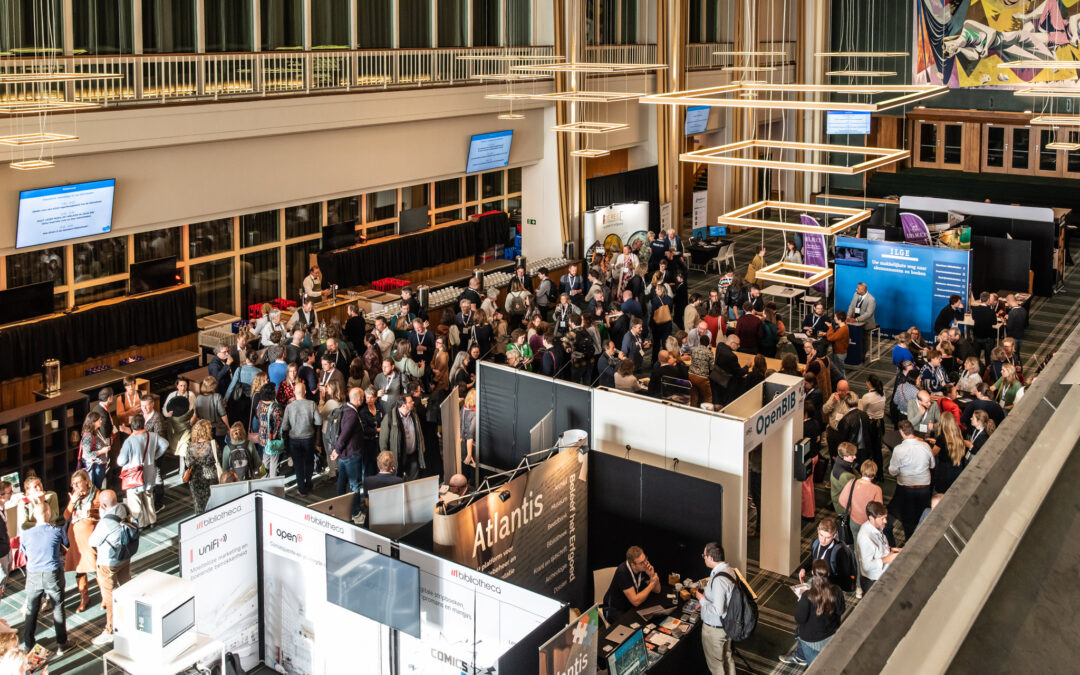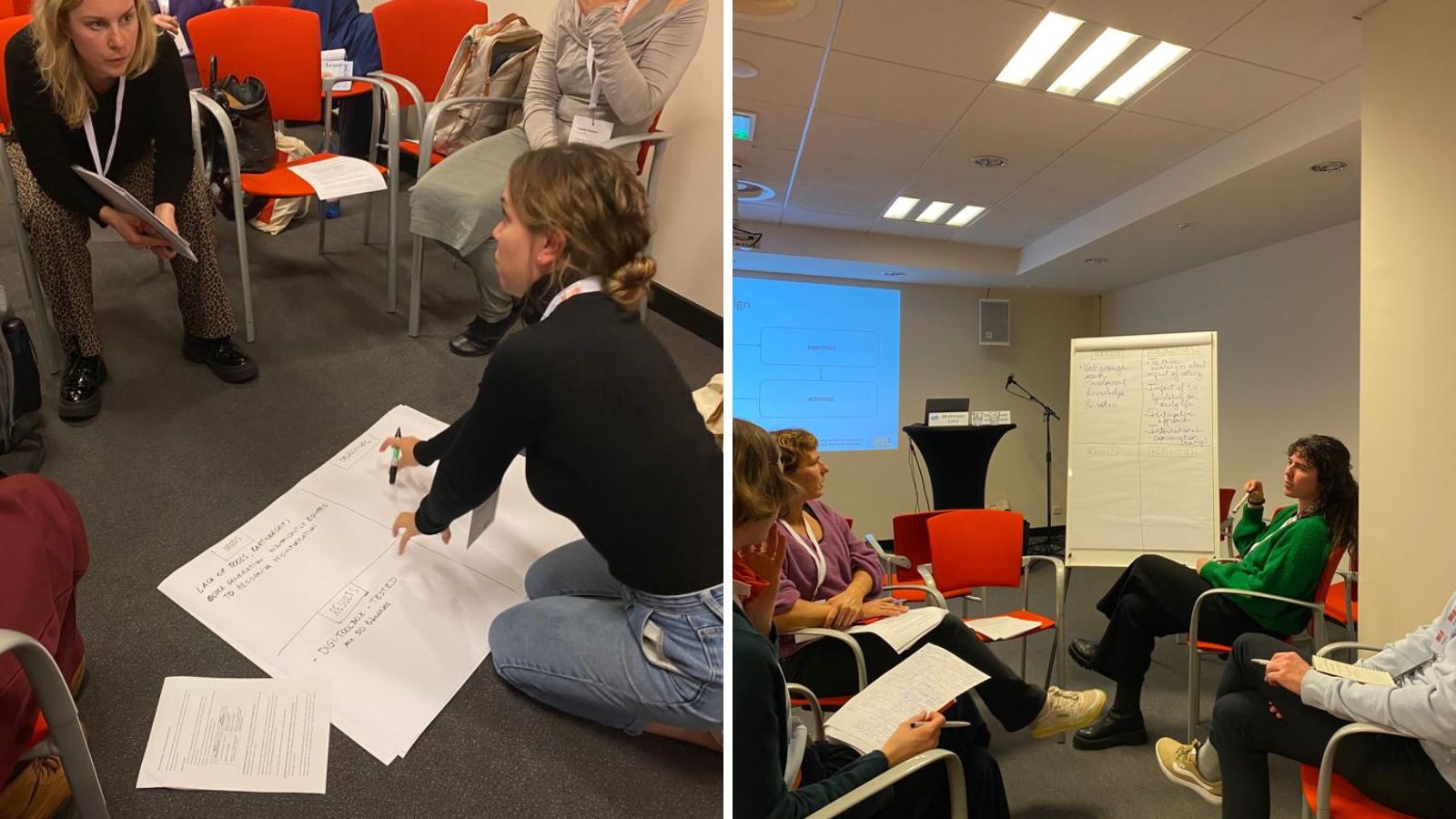On October 19, PL2030 hosted two sessions at the Informatie aan Zee 2023 conference in Ostend, Belgium. The two-day conference is an opportunity for information professionals in Flanders to gain knowledge, inspire each other and network. This year’s theme, “Impact: Are we making a difference? Make a difference!” took a closer look at the social role of the information sector and how it can stay relevant to an ever-evolving society. The conference included sessions on community, participation, diversity, decolonisation, an inclusive and equal society, ethical practices, sustainability, and the impact of new technologies on the sector and community.
Shaping the future of libraries in Europe together
In the morning, Ton van Vlimmeren (EBLIDA President and PL2030 Board member) and Luca Moltmann (PL2030) gave a lecture on ‘Shaping the future of libraries in Europe together’. They provided an overview of the European library landscape, such as the ongoing partnership between EBLIDA, NAPLE and PL2030, and examined the current challenges in Europe, what libraries can do to address these challenges to foster democracy, and what is happening to support libraries at EU level.
In particular, the session emphasised the significance of the EU Work Plan for Culture 2023-2026 and the action on libraries included in the work plan. The document recognises libraries as playing a key role in strengthening Europe’s democratic, social, cultural, and educational landscape at all levels, contributing to citizen engagement, and welcoming diverse groups, developing programmes and activities which reflect current societal challenges! An expert group will start in 2024 to work on policy recommendations to support libraries in Europe. The presentation was followed by a lively interactive wrap-up and Q&A session.
RL:EU Workshop on project design
In the afternoon, Juliette Chalant Devlesaver and Luca Moltmann (PL2030) hosted an interactive workshop as part of the Resourcing Libraries (RL:EU) project to inform professionals within the wider library sector about funding opportunities at the European level. Focusing on Erasmus+ and Creative Europe, the workshop included a presentation of the funding programmes, project examples (such as ADELE, FEPL and LoE) and was followed by an interactive exercise on project design. The participants were split into two groups and tasked with designing a fictional Erasmus+ project based on two challenges (“needs”) linked to the European horizontal priorities (Inclusion and diversity, Green, Digital, and Active Participation).
The workshop was hosted as part of the project’s mission to help Europe’s public libraries learn about EU initiatives and programmes and access EU funding in order to support their adult education programmes and strategies. The project also supports public libraries by hosting webinars, group coaching and mentoring sessions.
Cover image: (c) Simon Bequoye






